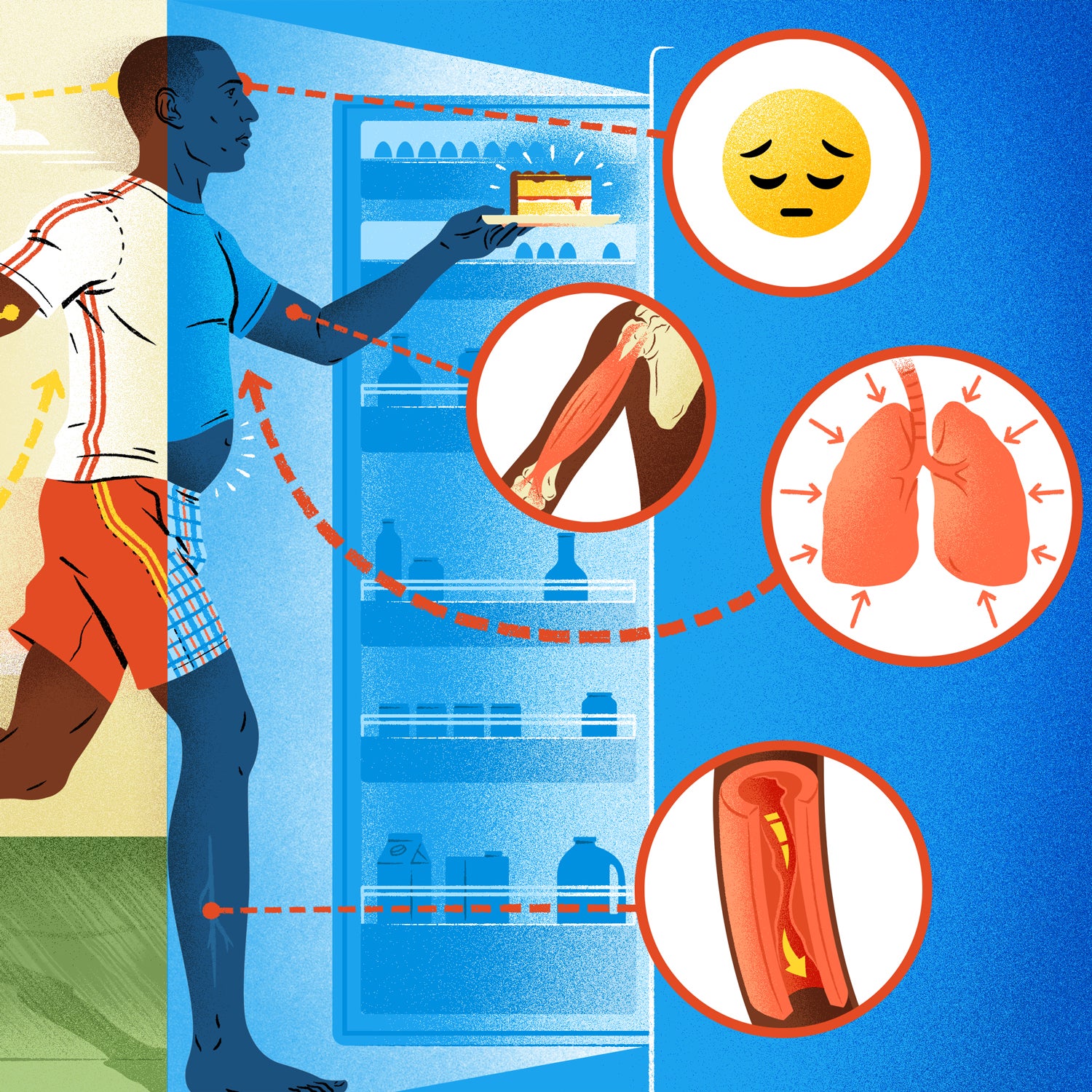When a planned rest day turns into a rest week or a nagging injury keeps you out of the game for longer than anticipated, you expect a little guilt over dropping your exercise habit. But we consulted the experts to break down what happens when workouts grind to a halt and what they have to say may surprise you. It's okay to take time off, but there are physiological changes that you should be aware of. The good news: while some gains do vanish overnight, most are reversible or don't take much effort to maintain.
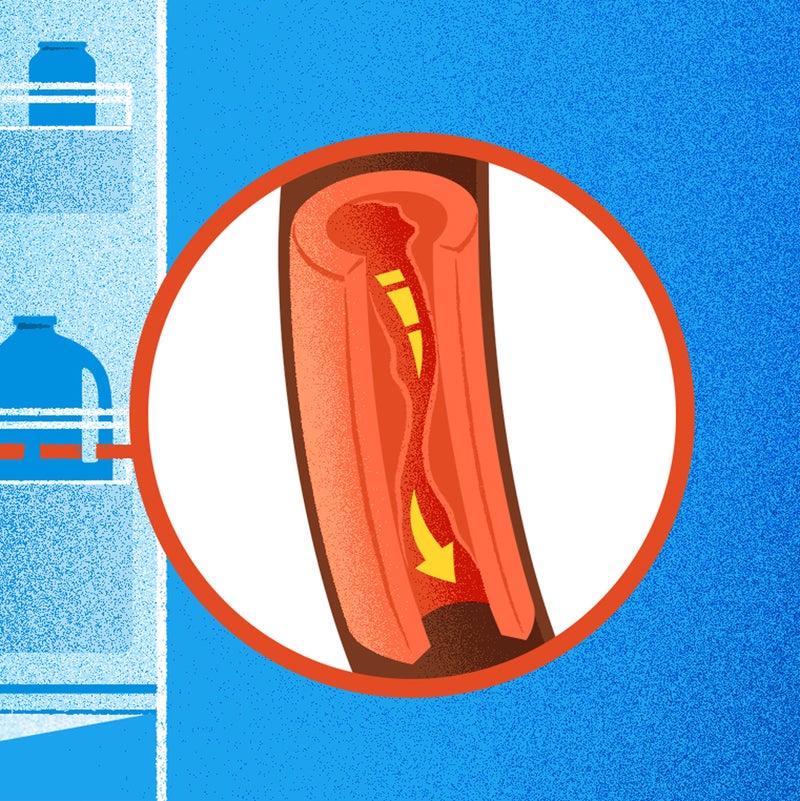
Blood Pressure Rises
In the short term, your blood pressure will change within a day depending on whether you work out or not. “With blood pressure, things happen very quickly, and they also cease very quickly,” says Linda Pescatello, a blood-pressure researcher at the University of Connecticut. Exercise causes increased blood flow, meaning your arteries temporarily widen to facilitate greater circulation. They tend to stay slightly larger for about 24 hours, but if you don’t get your heart rate up within a day, your blood pressure returns to baseline.
Quick response time aside, these acute effects don’t change the structure of the arteries themselves. It’s actually training adaptations (in addition to diet and genetics) that allow you to lower your blood pressure substantially after three months of consistent exercise or, alternatively, begin to narrow your arteries when you don’t work out for a long time.
Although daily movement is important to health, it takes around three months for your arteries to feel the impact of your dropped gym habit. It’s not until that point that they’ll begin to stiffen and narrow, so a few days’ rest won’t hurt you. But be warned: if you nix exercise for such an extended period, it will take another three months of steady exercise to get your arteries back to their best shape once you do return.
A little goes a long way. “The more you do, the better off your blood pressure is,” says Pescatello. “If you only got in exercise for half of a week, you’re still going to see some benefit…something is always better than nothing when it comes to blood pressure.”
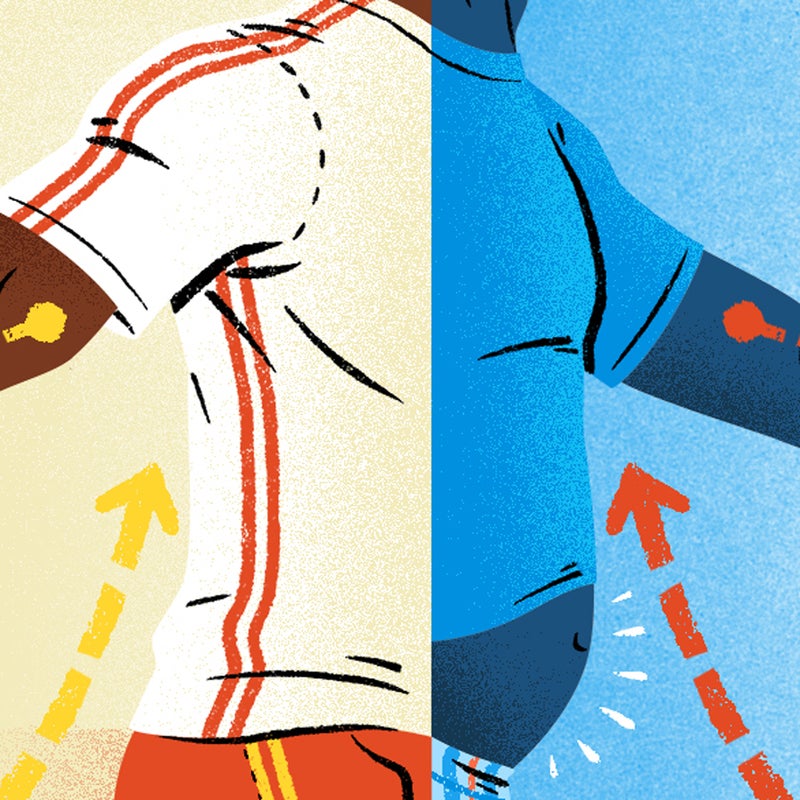
Skeletal Muscle Starts Resisting Insulin
When we exercise, our muscles process insulin and absorb the resulting glucose as energy. Reduce that energy expenditure and your muscles will adapt physiologically to become a little less insulin sensitive, says John Thyfault, a researcher at the University of Kansas.
Losing insulin sensitivity means your body converts sugar into fat rather than using it as energy to power your movements. And while that adaptation helped our hunter-gatherer ancestors survive a feast-or-famine lifestyle, it’s bad news for the modern desk jockey, because improper regulation of insulin can prompt your cells to store some of what’s not used in muscle movement as fat. This change puts you at greater risk for the foundation of other conditions, such as Type 2 diabetes and inflammation.
Thankfully, your body can adapt pretty quickly to increased insulin sensitivity with just a little bit of exercise and healthier eating. High-volume and high-intensity exercise can be equally effective at making your body more sensitive. Just a 30-minute walk or a ten-minute HIIT regimen a few times a week will suffice for keeping your body eagerly processing insulin.
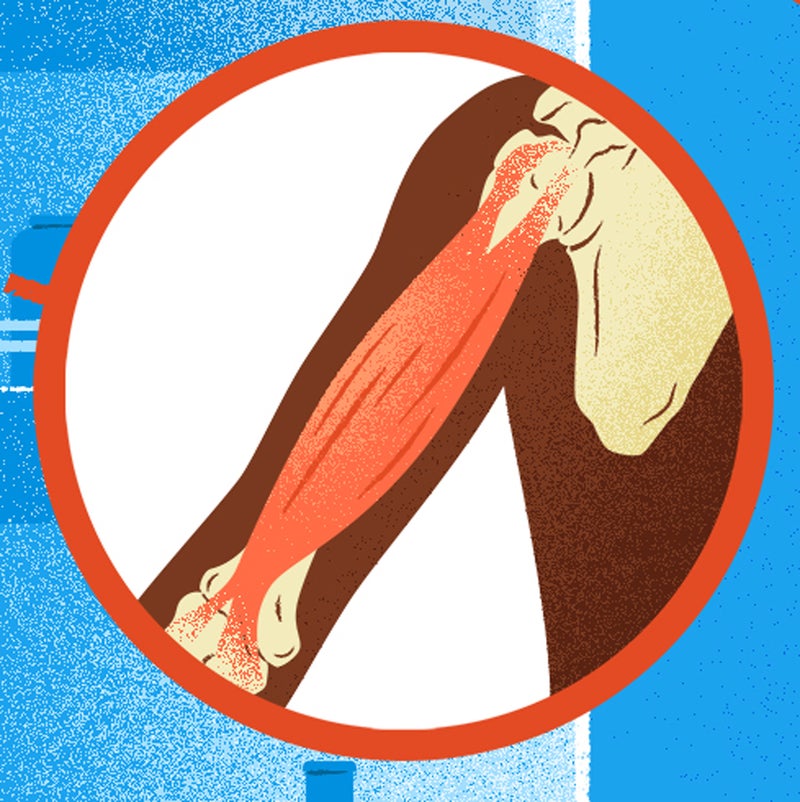
Muscles Shrink
You’re going to get small—and it’ll happen fast. The visible gains you made from a lifting routine will diminish within a week of quitting the weights. But smaller doesn’t mean weaker. “The thinking has changed recently,” says Jeremy Loenneke, exercise physiologist and assistant professor at University of Mississippi. “It suggests that muscle strength is probably not related to muscle size.”
Loenneke’s research, coupled with similar studies on muscle strength versus size, suggests that strength gains are actually dependent on neural responses in the brain or spinal cord. Weightlifting doesn’t just break down muscles and build them up bigger. It actually improves communication between the brain and the muscles being activated. That means your “strength” won’t be determined by the size of your biceps, but by the actual capacity of your brain and muscles to complete a certain task.
“If you have a weekend away on vacation, it’s probably not going to have a big impact on muscle size or strength,” says Loenneke. “Now, if you take off a month, you’ll lose muscle size, but strength is going to be relatively maintained.”
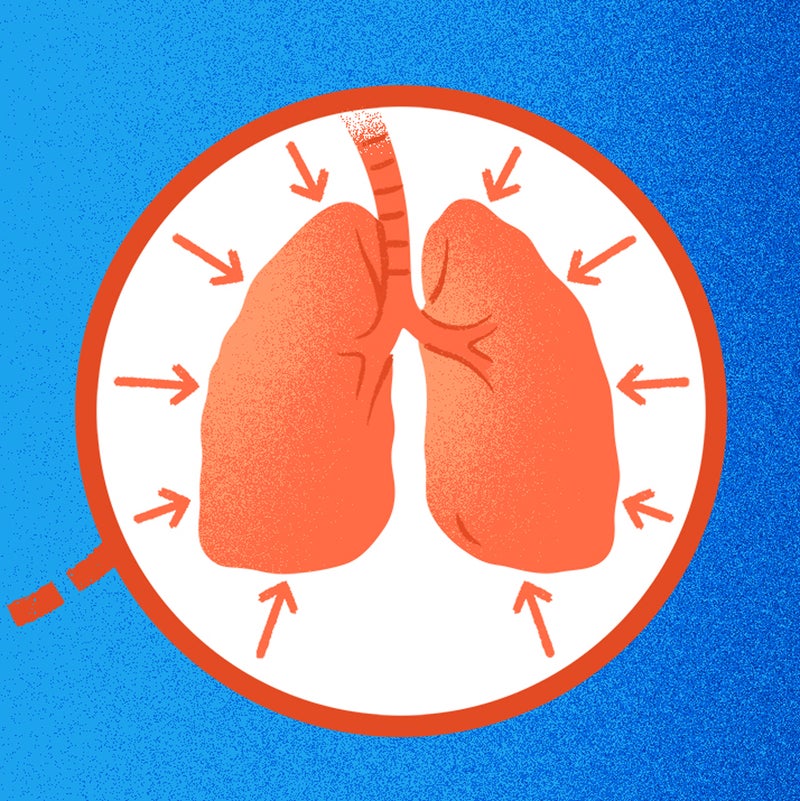
VO2 Max Drops
VO2 max—the maximum amount of oxygen you can get into your system—matters because it helps determine your cardio capacity and performance potential. Edward Coyle, a physiologist at the University of Texas, has dedicated his career to better understanding the role VO2 max plays in an athlete’s physiology and how quickly it begins to diminish.
One of Coyle’s studies unearthed hard numbers to create a timeline for VO2 drop-off. After 12 days, it dropped an average of 7 percent in test subjects, but then held steady until 21 days after the athletes’ last workout. By 56 days, VO2 max had dropped by around 14 percent, and finally hit a 16 percent decline after 84 days. But Coyle says 12 is the key number: “It turns out the decline follows a half-life of about 12 days. You decline half of the level from where you start during the first 12 days.”
However, even Coyle says VO2 max isn’t everything—you have to be able to put that oxygen to use, after all, and that means factoring in exercise economy (how efficient you are) and lactate threshold (how fast you can run or how hard you can push before your quads turn to stone). It’s also important to look at what was previously gained to determine where you’ll be after a lengthy break. According to Coyle, for every week you remain idle, it takes about three weeks to regain the lost adaptations. If you’re starting at an incredibly high level of fitness, this isn’t a huge deal, but if you’re just beginning to exercise, it may be harder (or more discouraging) to come back from a period of exercise abstinence.
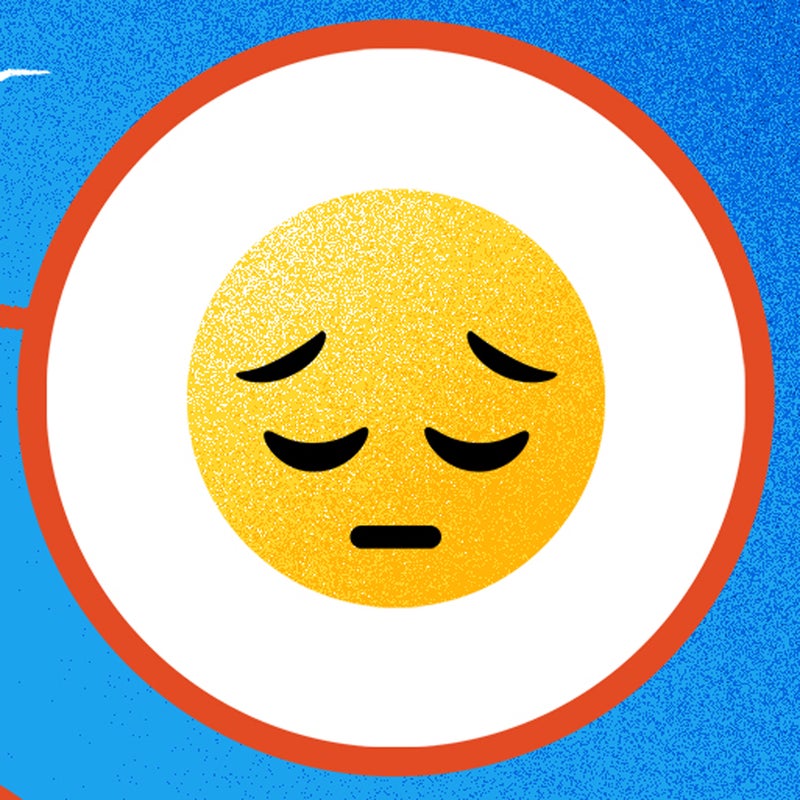
Grumpiness Takes Over
A single hike, swim, run, or ride almost instantly makes you happier, thanks to a rush of feel-good endorphins. But turn that one afternoon outing into a long-term daily habit and you’ll see bigger mood boosts every time, according to a study in Psychosomatic Medicine. Get out of the habit and your emotional drop will be much steeper, too.
Additionally, staying active may fight anxiety. Michael Otto, a psychologist and professor at Boston University, explains that exercise can mitigate anxiety by firing up your fight-or-flight response, the evolutionary trigger for adrenaline, sweat, and increased heart rate when faced with a challenge. When you stop exercising, your body forgets how to handle stress. Because you’ve allowed your natural fight-or-flight response to atrophy, you’re less likely to experience something tough—whether an interval workout or a stressful workplace relationship—in a positive way. Instead, you get anxious.
“Many people skip the workout at the very time it has the greatest payoff. That prevents you from noticing just how much better you feel when you exercise,” Otto said in an article for the American Psychological Society. “Failing to exercise when you feel bad is like explicitly not taking an aspirin when your head hurts. That’s the time you get the payoff.”

